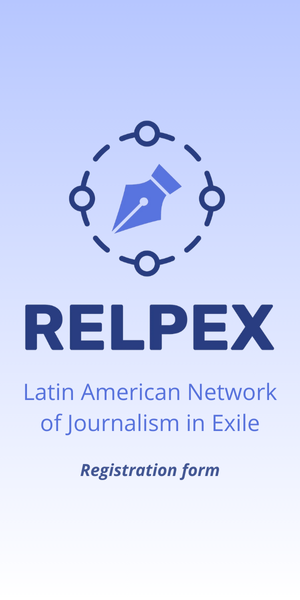The Internet, Artificial Intelligence (AI), and other digital technologies have the potential to expand the freedoms of expression and information by offering immediate and global access to vast knowledge, enhancing the aspirations of the Universal Declaration of Human Rights, which advocates for freedom of expression without borders or violence.
In the digital ecosystem, threats to these freedoms and public debate also arise from arbitrary state regulations, censorship, blocking access or content, cyber surveillance, harassment, discredit campaigns, and digital violence. Additionally, there is the opacity of algorithms that induce polarization, confirm biases, and propagate misinformation and hate speech. Market concentration on digital platforms also undermines journalism's copyright and intellectual property rights and compromises the sustainability of this fundamental tool for democracy.
Faced with these challenges and convinced that the freedoms of expression and press are not concessions from authorities but rather inalienable human rights, we are called to protect and promote the following principles in the digital ecosystem.
Principles
1. Rights linked to freedoms of expression and press must be equally guaranteed in analogic and digital environments.
2. Laws and public policies regarding the Internet, artificial intelligence (AI), and other digital technologies must ensure that the digital space is open, neutral, accessible to all, and adheres to human rights and intellectual property rights. When adopting regulations regarding these topics, the viewpoints of all stakeholders must be considered.
3. Governments should not inhibit, through regulation or action, access to the Internet and expressions of public interest in the digital space; nor should they impose aggravated sanctions against self-expression in that space nor penalize criticism, information, or protest against public officials or individuals who voluntarily expose themselves to public scrutiny on matters of public interest. In civil claims, it must be proven that there was actual malice, and disproportionate lawsuits (SLAPP or strategic lawsuits against public participation) that may generate self-censorship or costs that compromise the sustainability of the media should be discouraged.
4. Any restriction and subsequent sanction affecting the right to disseminate, share, or disclose information and ideas on the Internet must be established by law, validated by the judiciary, and consistent with international human rights standards.
5. Blocking and filtering access and/or content through state control in the digital space constitutes prior censorship, according to the American Convention on Human Rights.
6. States must ensure a violence-free environment in the digital space, free from cyberattacks and threats to those who fulfill the role of informing. Aggressions must be promptly investigated and sanctioned, considering the practice of journalism as a possible motive.
7. Authorities should not use digital surveillance to undermine citizens' freedoms and privacy. These mechanisms are only permissible in exceptional cases pursuing a legitimate aim within the framework of due process with a judicial order and following human rights conventions. Under no circumstances is mass surveillance acceptable. People must be guaranteed access to and control over their personal data collected by the State.
8. Laws must guarantee the right to protect the identity of the confidential sources of those practicing journalism and allow the use of encryption tools. In the debate on matters of public interest, the right of individuals to remain anonymous must be respected.
9. Legislation must ensure that actors in the digital ecosystem adopt good practices to safeguard users' data and privacy on their platforms and services. They must also have accessible complaint mechanisms for those affected exercising their rights. Using personal data for algorithmic, commercial, or other purposes must be transparent, consensual, and subject to judicial review in the case of abuse.
10. The suppression or de-indexing of information on matters of public interest undermines the citizens' right to be informed and preserve collective memory. Protecting personal data and privacy are fundamental rights, but they should not restrict or limit the circulation of information of public interest.
11. The malicious or deliberate dissemination of misinformation by State or private actors affects public trust and weakens democratic processes. In addition to the responsibilities of those who issue, distribute, amplify, or monetize these messages, news and digital literacy policies about the impact of technologies on privacy, informational self-determination, and information consumption must be adopted.
12. Public or private actors should not promote or finance online influence operations aimed at manipulating public opinions or attitudes for political-partisan purposes, stigmatizing media, attacking journalists, or harassing individuals through the revelation of personal data, cyber harassment, or threats.
13. As a general rule, governments should not impose legal responsibilities upon actors in the digital ecosystem for public interest content generated or shared by third parties on their platforms, except in the absence of due diligence and good faith to suppress war propaganda, incitements of hatred, violence, genocide or child pornography. Developers of AI systems and other automatic content generation platforms must assume responsibility for these, even when fed by third-party sources.
14. Technological intermediaries, such as developers of AI systems and other digital technologies, must respect human rights, promote freedom of expression, and resist pressures from governments and groups of power. They must implement self-regulation policies to prevent disinformation maneuvers and violating third-party rights on their platforms. Content moderation and curation rules must be clear and transparent, allow the exercise of complaint and review rights, and comply with international human rights standards.
15. Technological intermediaries and arbitrators in news distribution must operate transparently, prioritize original content, properly cite sources, including links to original sites, and avoid charging for news positioning. The opacity of algorithms determines society's access to diverse and quality information.
16. Technological intermediaries and developers of AI systems and other digital technologies must respect copyright and intellectual property rights, fairly compensate the benefits generated by the journalistic content they distribute or use to create automatic content, and avoid practices that affect free competition and access to an open internet. Editors and creators of content have the right to negotiate and receive fair remuneration for using their intellectual property by technological intermediaries and developers of AI systems and other digital technologies. Legislation must promote negotiations in this regard, help balance power asymmetries, and establish alternative mechanisms in case of negotiation failures. The obligation to compensate should not affect the editors' other rights, such as indexing, linking, or ranking their content. It should reflect the evolution of the revenues earned by technological intermediaries and developers of AI systems and other digital technologies.
17. Behaviors that seek to evade regulations on intellectual property, compensation for the use of news content, competitive practices, and algorithmic transparency affect freedom of expression and the right to information, compromising the viability of journalism and the citizens' access to quality information.
18. Freedom of expression and the sustainability of journalism are also affected by improper commercial practices that technological intermediaries, developers of AI systems, and other digital technologies may exercise due to their global reach, handling of large volumes of personal data, and integration into the advertising value chain. As such, authorities must prevent them from abusing their dominant position.
Under this Declaration of Principles, and in the spirit of the Declaration of Chapultepec, we reaffirm that the fight for freedoms of expression and press is essential for democracy and the common good. To defend them daily is to honor our history and shape our destiny.







